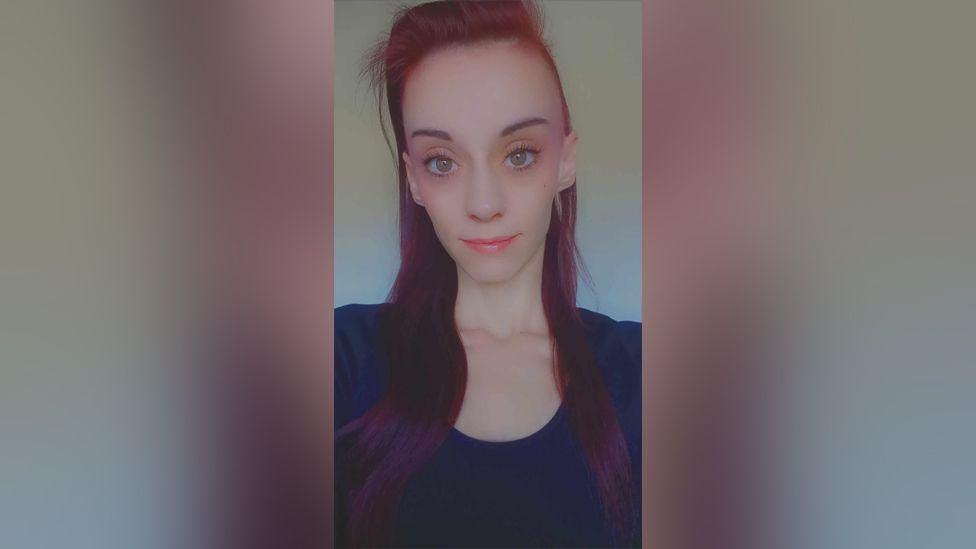Getting eating disorder diagnosis was 'gruelling'

Michaela Harris developed an eating disorder alongside her PTSD
- Published
A woman from Middlesbrough who has avoidant restrictive food intake disorder (ARFID) has spoken of her struggle to get a diagnosis.
In the worst stages of her eating disorder, Michaela Harris, 29, restricted herself to eating very few foods and struggled to keep liquids down.
Despite weekly trips to her GP, she says was told she "wasn't thin enough" to get the required help.
The local NHS say it has taken steps to ensure "people can now access help at a much earlier stage".
According to the eating disorder charity Beat,, external ARFID is a condition characterised by avoiding certain foods or types of food, having restricted intake in terms of the overall amount eaten, or both.
Tom Quinn, from Beat, said: “It really is a postcode lottery across the country when it comes to treatment available.
"What’s also important to note is that we’re seeing a significant rise in people reporting these kind of symptoms.
"On our national help line over the last five years we’ve seen a sevenfold increase in people contacting us about ARFID, so it really does seem like it’s on the rise.”

Doctors told Ms Harris she was not thin enough for diagnosis
Ms Harris says her weight fell to just a few stone while she went through a year and half of testing before getting a diagnosis.
She first became concerned about her eating pattern after she developed PTSD.
Her appetite reduced and when she did try and eat any food her body rejected it as she became extremely sensitive to temperature, smell and texture.
She said it was only when she reached her lowest weight that the doctors paid attention.
"It was very gruelling to get a diagnosis... and that really does need looking at and changing, especially for young children and young adults.
"It's far too much what we have to go through"
'Proud of myself'
She is now seeing a new specialist eating disorder team in Stockton and is waiting for her first assessment. She says she is already becoming more open minded to trying new foods.
"I'm really happy with the fact that I've managed to pick up a new meal recently, she added.
"I haven't been able to sit down and properly enjoy and finish a meal in probably a year and a half, close to two years now.
"It was jacket potato and I've had that now twice with two different toppings. For me that is a step in the right direction, I'm really proud of myself"
The North East and North Cumbria Integrated Care Board said: “In the past it has often been difficult for people to get the support they need for eating disorders, with treatment focused on patients whose weight had fallen to a very low point.
“We have taken steps to change this, so people can now access help at a much earlier stage.
"This includes support from specialist eating disorder services, core mental health services and mental health practitioners based in GP practices.
“We have also commissioned a service from Eating Distress North East, who can offer specialist advice, support and counselling at an early stage for anyone over 16 who is struggling with an eating disorder, without needing a doctor’s diagnosis.”
Follow BBC Tees on X (formerly Twitter), external, Facebook, external and Instagram, external. Send your story ideas to northeastandcumbria@bbc.co.uk.